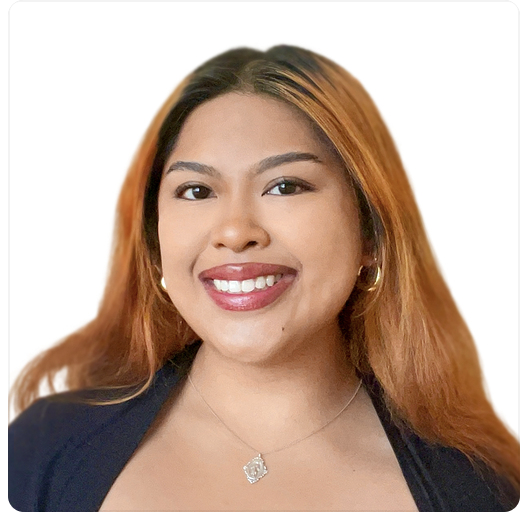In observance of Filipino American History Month (FAHM), we collaborated with members of our Highwire community to bring more colorful context into the identity of being a Filipino American.
Whether it’s balancing two different cultures, dealing with outside perceptions; the lack of representation when the “Asian” identity is often seen solely as East Asian; the impact of colonialism throughout the family tree; or wanting to be known for more than simply karaoke and food – being Filipino American has more depth than most people see at face value.
As a part of this project, Jazracanah (Jaz) Zulueta, account associate at Highwire and Highwire alum, Gina Gacad, had an intimate conversation with their parents, who immigrated to the U.S. from the Philippines decades ago, to grasp the proliferation of Filipino American identities. The commentary below includes excerpts from their conversations.
Commentary from Laura Zulueta (Jaz Z’s mom)
How did you adjust to living in America? Did you feel like you needed to leave your Filipino heritage behind, or did you feel it was important to continuously be proud of your identity? If so, why?
Choosing to live here in America was a great opportunity. Most Filipinos have a desire to come and live here.
When I arrived here in 1991, honestly speaking, I was amazed at how well everyone drove on the road and followed traffic laws! This was very different from the Philippines.
Frankly speaking, I did not have that much hardship adjusting here in the U.S. because there were already so many Filipinos here. Also, when it came to food, there were already a lot of Asian and, specifically, Filipino markets and restaurants.
It was easy to understand and speak to people here, too, given English was one of my main subjects in the Philippines.
As far as my Filipino culture—I definitely didn’t have to leave that behind. Of course, I’m keeping it! In my culture, being Filipino was more about manners and customs, such as respecting your elders, paying attention to curfews, eating together, and going to church together.
One thing I love about the U.S. is how diverse it is while also being openly religious. I love to see that our currency says, “In God We Trust.”
While I love my identity as a Filipino overall, I like to think we are all the same and are fearfully and wonderfully made!
Commentary from Marissa Gacad (Gina’s mom)
What drove you to emigrate from the Philippines?
I married an American citizen. I didn't plan on immigrating on my own. Your dad’s family was already here, and they wanted a better opportunity and a better life.
How has American culture changed/impacted your day-to-day (ex: code switching, more individualism, etc.)?
I embraced assimilation to the lifestyle once I arrived. It's more fast-paced here. You cannot use the same schedule you had at home because you have to assimilate into the lifestyle. Even the way you talk, the way you eat, pretty much your schedule is more hurried, even the available recreation.
Is there something from your life in the Philippines you wish was the same here?
I wish I could be closer to family because family is the first one you turn to for support. In my case, I have family in San Diego and Sacramento – we’re spread out. It would be nice if we were closer, but you're following where the jobs and opportunities are.
How has being an American impacted your identity as a whole?
Having lived here for more than half my life, I am more assimilated now into American culture. If I go home to the Philippines now, it would be a little bit strange for me. The neighbors I used to know are gone, the people… I don't know them anymore. I can still relate to what they do and the culture, but probably the pace of life would be another adjustment for me because now I'm used to how it is living here.
What are the biggest generational differences you see, especially in regards to being from the Philippines and raising three kids in America?
The biggest difference is in the spiritual and faith part. I see the difference in your cousins who grew up in the Philippines. Filipinos are majority Catholics, and they observe Catholicism in the way they live (e.g., going to church). I wish I did a better job of instilling those in you.
Contributions by Highwire Alum Gina Gacad
